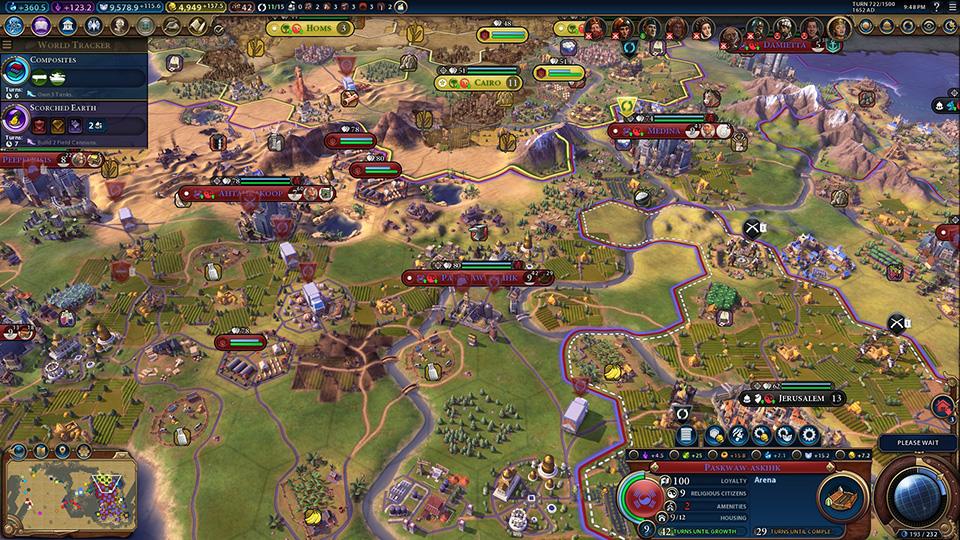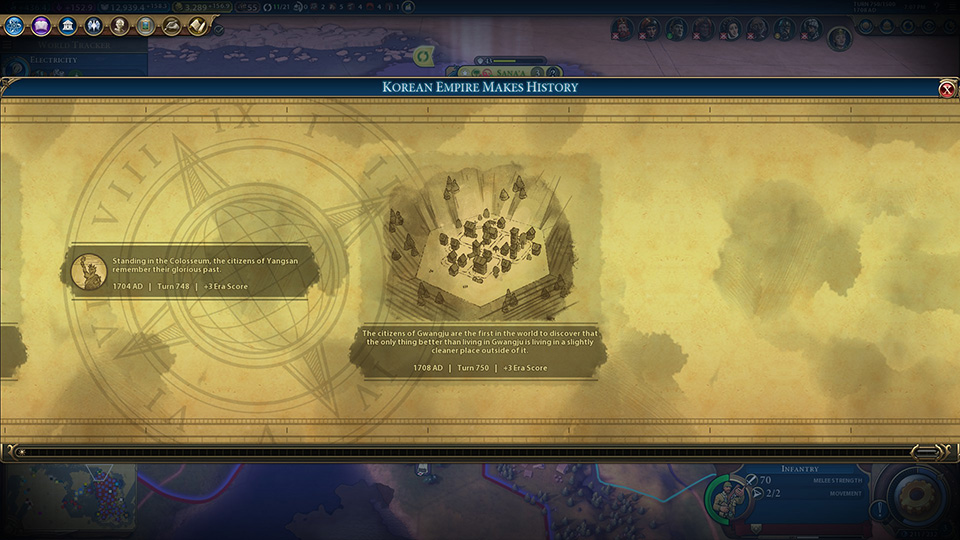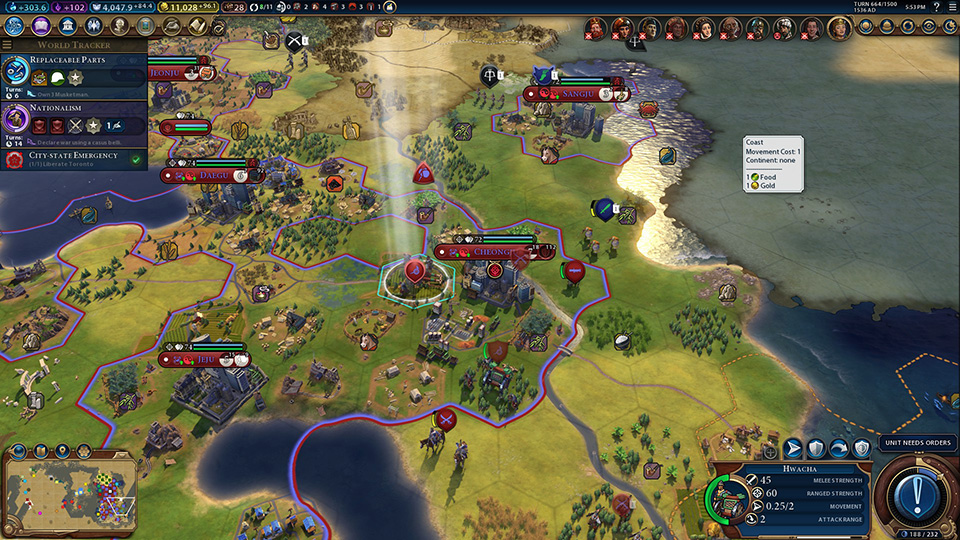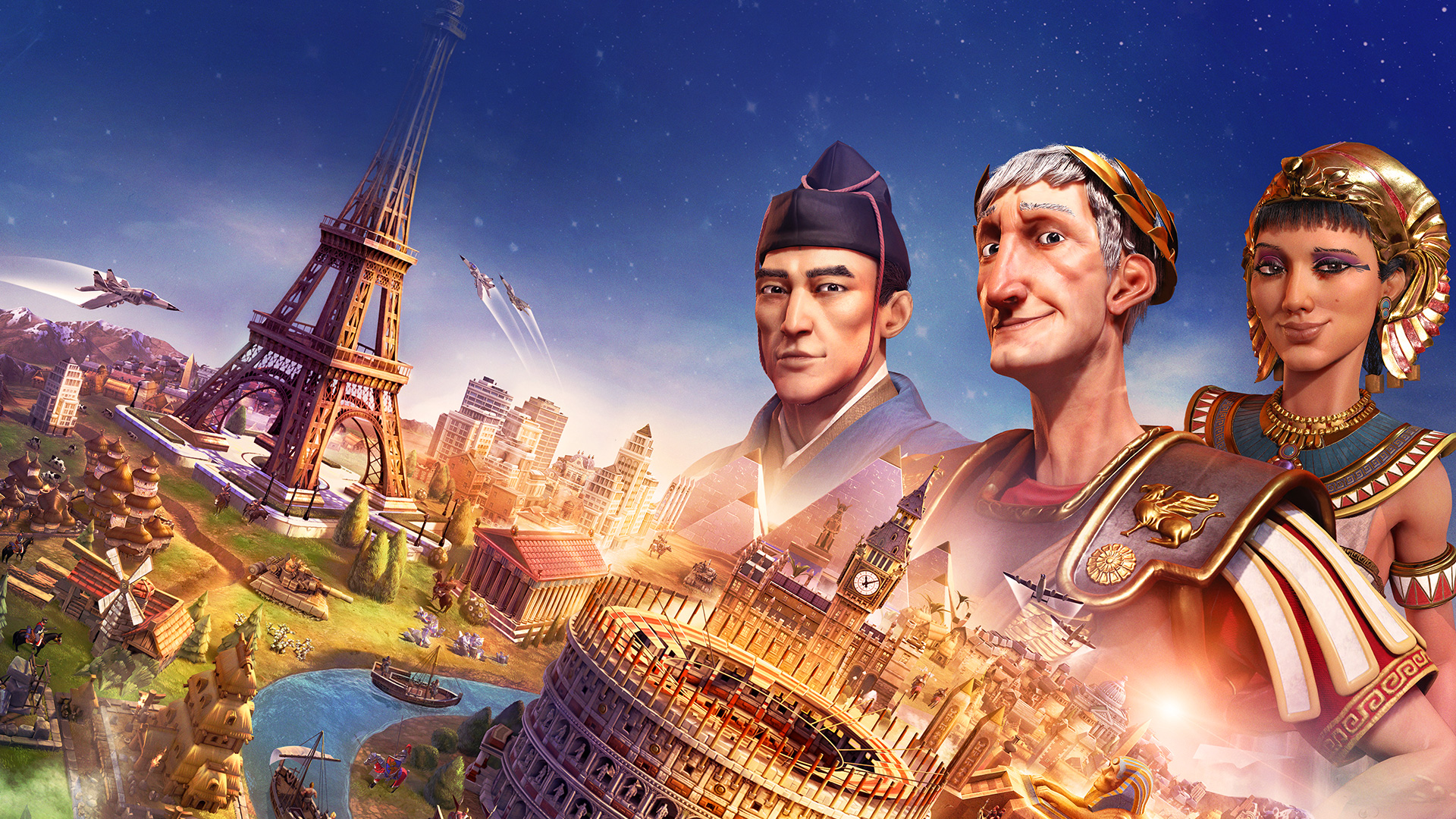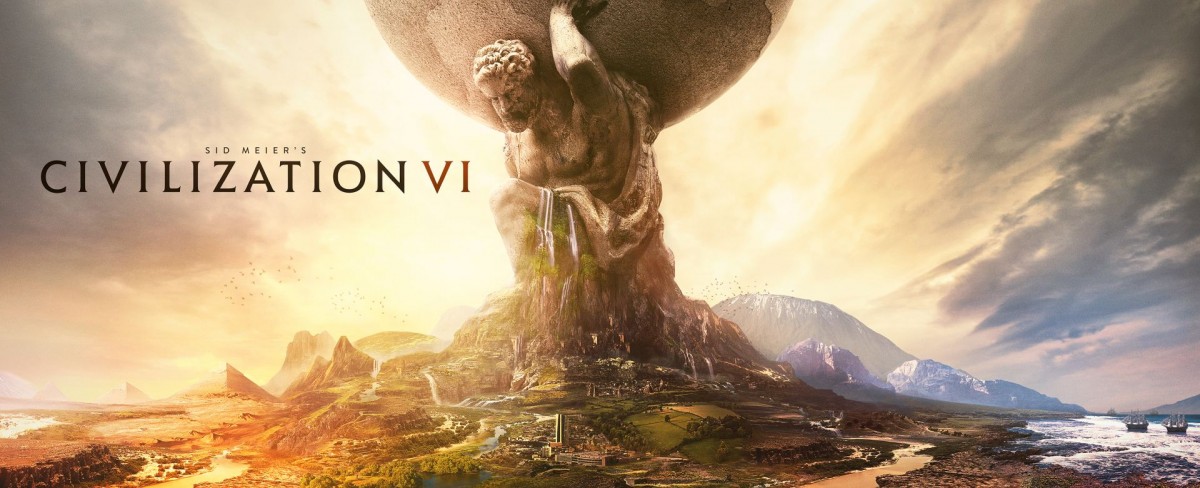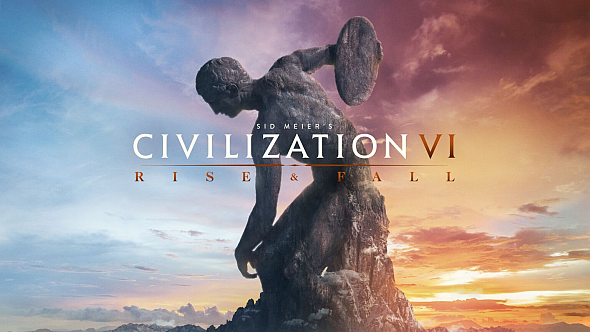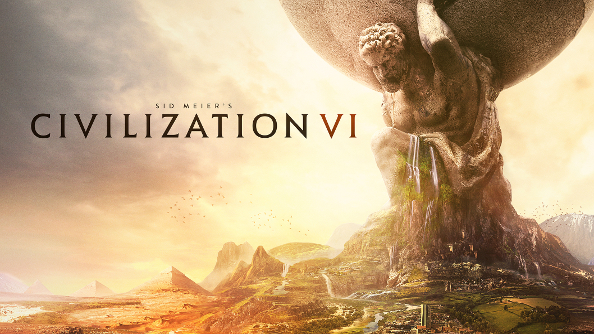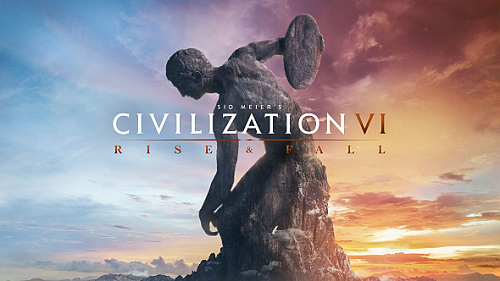
There’s a very particular pace to a Civilization game. A deliberate, controlled pace that gives you all the time you need to consider what you’re doing and how you wish to proceed. Calculating, perhaps. As a game progresses, however, this can give way to something else. Not quite boredom, but periods of endlessly clicking the next turn button while waiting for things to happen.
In my original review of Civilization VI, I said that it was hard to imagine what else could be added to the game in an expansion. With Rise & Fall, the answer is to be a cure for that late-game boredom. In my preview of the expansion a few weeks back, I mentioned that it was more about refinement than wholesale upgrades, and, now that I’ve been able to play through past that preview’s 150-turn endpoint, I’ve been able to see much more of what it has to offer, and how it solves the problem of endless waiting during the late game.
First, though, let’s talk ages. Ages have been reimagined and have far more consequence in Rise and Fall than they ever did in the original game. While there are still ages for your civilisation to advance into, there’s also distinct ages that apply globally. During an age, you earn points towards your era score, and the total era score you’ve achieved will determine what happens in the next age. Hit the quota, and you’ll enter a ‘normal age’, where everything will hum along just nicely. Exceed that quota by a certain amount, and you’re in golden age territory. Fall short, and it’s time for your civilisation to enter into a dark age.
Each new age allows you to make a dedication, which will give you a specific objective to work towards to earn extra era score for that age. These can be things like defeating military units, earning Great People or completing trade routes (which, if it’s an option, can be very lucrative for era score).
The other benefit of ages is loyalty. This is a system where your cities exert pressure on nearby cities. For cities already in your empire, this helps keep them that way. For other cities, though, it can flip them to you. This mechanic is the revival of an idea that first appeared in Civilization III, where cities could ‘culture flip’. There it was something that could feel arbitrary and random, especially if you were on the losing end. In Rise and Fall, however, there’s an obvious indicator and mechanic driving it.
If a city is receiving a lot of pressure from another civilisation, it may start losing loyalty to the civilisation it belongs to. An indicator on the city’s title plate will show if this is happening, and a more obvious indicator will be overlaid on the city itself if it’s in imminent danger of revolting against its civilization. Once a revolt happens, the city becomes a free city, where it works not unlike a city state. Cities can stay in this state for a long time if there isn’t enough pressure being exerted by surrounding civilisations (they will actually become loyal to the free cities faction). If another civilisation is exerting that pressure, however, the city will ask to join them, and the civilisation can either accept or reject them (a good historical precedent for this mechanic might be what happened with Texas in the 19th century, which revolted against the nation of Mexico, remained independent for a few years, and then joined the United States as a state).
In general, gaining cities like this only happens if you’re in a golden age, where loyalty pressure is increased by 50%, and the opposing civilisation is in a dark age, where pressure is reduced by 50%. It seems, as far as I can tell, to never happen with city states, either. I gained four cities from a nearby civilisation in one game just because of this mechanic, and soon learned that accepting those cities was a great way to end up hated by everybody.
Being hated by everybody did lead to a problem for me during my marathon-speed game, in that I couldn’t actually make alliances with anyone, or try out the new alliance specialisations. My early decision to play as Korea meant that, as their special district, the Seowon, is a science generating district (it replaces the regular campus district), I decided to focus on a science victory. This focus led me to having the kind of technological advantage that sees tanks going up against crossbowmen, which is always fun if you’re the one with the tanks.
I think, perhaps, my inability to get these alliances is more down to my preferred playstyle, which is to expand rapidly early (I always go for the Early Empire card) and research like a madman. Playing as science-focused Korea certainly enhanced this approach, and I was covering most of a continent by the time the industrial age rolled around.
If you fail to make an era score quota and fall into a dark age, it’s not the end of the world. Governors are a new addition that, when placed in a city will increase its loyalty. The governors— of which there are nine, meaning you’ll need to be strategic about which cities do and do not have them— can be levelled up through individual skill trees, much like military units, except through a system of governor titles that are awarded for performing various actions (certain civics, for example, grant them). Early on, you’ll spend these titles unlocking the governors themselves, as each brings far more benefits than one levelled up governor can. One governor has the ability to be placed in a city state that you’re not at war with, immediately doubling the number of envoys you have in that state.
Governors prove to be very useful for bringing loyalty to cities you’ve taken from other civilisations, either through loyalty or by force. Depending on the governor you place in a city, they may bring other benefits as well, such as increasing construction speed or how much gold, food or housing a city generates. It’s a great new addition that adds more personalisation to the game.
The final thing I got to experience in the full game that I never saw in the preview is city state emergencies. These are essentially super-quests for city states, with huge rewards if you succeed. In one game, I liberated a city state from an invading force, and received around 8000 gold (a ridiculous amount at that point I the game) for my troubles. Yes please.
Even deep into the late game, I found I was engaged and enjoying myself. While there were periods where I had a turn with nothing to really do, there were never long runs of just hitting the next turn button. Even in my marathon length game (1500 turns), there always seemed to be stuff to do at all times, and I felt much more connected to the goings on of my civilisation— which, by the late game, consisted of a good thirty or so cities— than I ever had previously.
Civilization VI is already one of the series’ classic entries (honestly, there’s never been a truly bad Civilization, just ones that are better than the others), and Rise and Fall refines it into its ultimate form. A classic strategy board game in your computer that gives you all the tools you need to bring your civilization through history. If you own the game, then this is an essential pickup. Even if you don’t, then you should certainly consider picking this up alongside it.
All the great Civ VI gameplay you already loved
Refinements enhance the experience without radically altering it
The wonderful title music, Dream of Flight, greeting you every time you load a game
Initial load times are still very long

